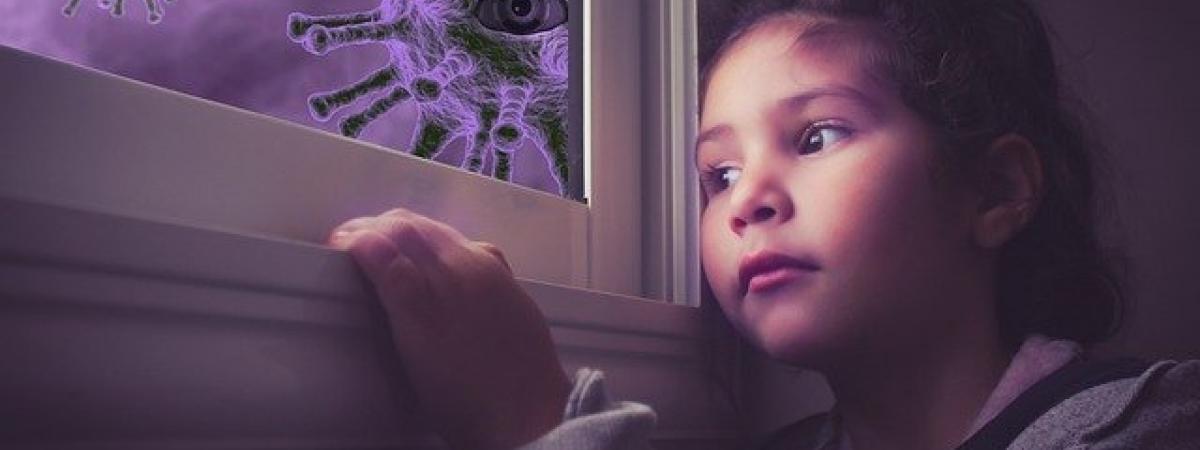7 effective shields against COVID-19
published in Reader's Digest,
11 September 2021

From a plant rich diet to the very obvious face masks, here are ways to protect yourself from COVID-19.
Covishield, a version of the Oxford-AstraZeneca vaccine manufactured in India, is so named because it shields against COVID-19. In keeping with the battle theme, one of the codenames for Pfizer’s vaccine is “courageous”.
Data from Public Health England suggests that the vaccination programme may have shielded against 24 million infections and 105,000 deaths.
A different type of shielding, through staying at home as an informal carer, pre-vaccination, was something that I did during the first part of the pandemic.
Helping arrange vaccines for care home residents and their staff during this period of enforced isolation, I have since returned to care home nursing, and have seen the shield in action, with the vaccine often allowing COVID-positive residents to remain symptom-free.
The risk for breakthrough infection in fully vaccinated people remains, through continued community transmission of the virus. At least seven other shields are still important.
The front door
Health secretary Sajid Javid has said that July 19 would be “the end of the line” for England’s lockdown. Life behind closed doors continues though for those in quarantine hotels, or in self-isolation through infection or, for the unvaccinated, the Test and Trace scheme. Most heartbreaking of all are the front doors closed in care homes during an outbreak.
Kate Middleton captured the poignant “glass kisses” from a toddler to their grandmother, in her “Hold Still” photography project. During care home outbreaks, kisses may be stolen away and replaced by a glimpse of a loved one; the resident may be unable to place the face or voice in time or space, through the disorientation of dementia or the glare of a sunlit window.
Much has been made of technology to help families stay connected, though this can distress, against a background of delirium and dementia in an already anxious older person.
Food
“Did you know that not only can our diet change how we feel, but it can also affect how easily we can catch COVID-19, and how likely we are to suffer severe symptoms of the virus?” writes Professor Tim Spector from the COVID Symptom Study Scheme at King’s College.
While agreeing that there is no one “superfood”, he recommends a plant-rich, varied diet—and that doesn’t mean just fruit and vegetables: “nuts, seeds, pulses, grains, herbs and spices all come from plants too (as do tea and coffee)”.
When it comes to care homes during COVID-19, the committed catering teams deserve special recognition. Whether soft and bite-sized, minced and moist, pureed or pretty standard, their meals are important for your gut microbiome, which in turn influences the body’s immune response to infection.
"nuts, seeds, pulses, grains, herbs and spices all come from plants too (as do tea and coffee)"
Face shields, fresh air and free testing
Early detection and isolation of infected individuals through testing can help slow the spread of the virus; letting fresh air into indoor spaces removes air that contains virus particles. The Government, in its “hands, face, space” campaign missed out in its message the merits of ventilation, until one year into the pandemic when “fresh air” was also added to the slogan.
Face shields are simple, cheap and potentially effective: in countries where mask mandates were introduced, the rate of spread of the virus subsequently fell substantially, notes Oxford University Professor Trish Greenhalgh.
When weighing up different shields (face masks and isolation), she comments, “I suggest we take that front door, turn it on its side, shrink it down to the size of your hand, and make it out of a double layer of cloth.”
Forgotten heroes
Damoah Asare works as cleaner at a London hospital, and knows that his has been an essential role during COVID-19. “If the doctors give medication and we don’t clean to reduce the infection, they haven’t done anything… someone has to be a nurse, someone has to be a doctor and someone has to be a domestic” he says.
Florence Nightingale, in 1859, emphasised the importance of hand hygiene. Though speaking and coughing are now known to be more important in the transmission of COVID-19, surface transmission can’t be ruled out, and so handwashing is still recommended.
Fraternity
Shielding against the less-recognised mental health effects of COVID-19 has been difficult. Asking how people are coping, and how challenges from bereavement to financial hardship have changed people’s lives, the COVID-19 Social Study at University College London reports that anxiety and depression remain highest in young adults, women, lower income households, ethnic minorities, those with a physical health condition, and those living with children.
Evidence is also emerging of COVID-19’s unequal mental health impact on health workers. In the soon-to-be-released TV drama, Help, Jodie Comer plays the role of care worker Sarah whose “unwavering commitment, compassion and heroic efforts can only do so much” and she is “pushed to her limits and desperately looks for a way out”.
We need to keep looking out for one another, bearing one another’s burdens, being one another’s shield.
No shield is guaranteed to succeed
When Goliath faced David in battle, he sent his shield-bearer ahead of him, yet Goliath still died, killed by an enemy so much smaller than himself.
Larni Zuniga, Resy Manalo, Lalaine Lopez Pesario, Gilbert Barnedo, Elsie Sazuze, Suzanne Loverseed and Karen Hutton are some of the care home workers who lost their lives during the coronavirus pandemic. Some 4 million people have died globally, including at least 115,000 health workers. We shall remember them.
